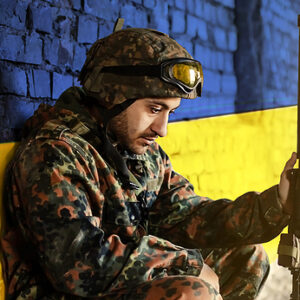When I was a little boy, my grandmother and great-grandmother took me back to Slovakia, a stone’s throw from the borders of Poland and Ukraine.
My great-grandmother left Slovakia in 1938 before Hitler invaded or “annexed” Czechoslovakia. In retrospect, annexed seems far too kind a word, reflecting a tendency towards sterile, technocratic language when we wish to avoid telling the truth.
Grandma was 20 years old, 8 months pregnant, and didn’t speak a word of English. She left her husband behind. She moved to America because she wanted her daughter to grow up in a country free from foreign invasion, oppression, and dictatorship. Her first job was mopping the floors of the Empire State Building.
In 1995, Slovakia had finished her peaceful divorce from the Czech Republic but had not yet recovered from Communism. I vividly remember acres of fields overgrown with weeds, overshadowed by old power lines—land that had been “collectivized” or appropriated from our family by the Soviets.
To this day, it remains under government control.
I remember statues of the Virgin Mary perched in stone niches in the facades of houses, previously hidden from a Russian regime that sought to destroy religious freedom and sow fear through suppressive acts of violence. I attended a joint Greek Orthodox and Roman Catholic mass, which is not technically allowed. The two faith communities had banded together over the years to survive Stalinist purges and occasionally maintained the tradition.
The arc of American foreign policy has often been both problematic and complex. Best intentions and unintended consequences litter our history, not unlike minefields left behind in the wake of global conflicts.
Intervening in World War II in Europe and the Pacific was both existentially required and just. My grandfather, who survived Pearl Harbor, would agree.
But not all conflicts are created equal. When do we put our own troops’ lives at risk? How much skin in the game is skin enough? What are the long-term savings, consequences, and costs of isolating ourselves or ignoring the spread of tyranny and the suffering of others?
Should we have continued to fund Afghanistan after the 1980s war that defeated the Soviet Union? When choosing not to, could we have known what would happen on 9/11 or for the 23 years that followed?
When it comes to American foreign policy, we are our own worst Monday-morning quarterbacks.
But the arguments I hear for abandoning Ukraine employ logical determinism, not logic.
Vladimir Putin has unequivocally shown us what Vladimir Putin does: Russian expansion, violent oppression, and brute force against any who challenge his imperialist Soviet agenda.
When someone shows you who they are, believe them. Ask Alexei Navalny.
Russia attacked our elections on U.S. soil with Kremlin spies. Russian agents attacked our foreign service officers with military sonic technology at U.S. embassies across the world and our fellow American citizens.
The problem with Ukraine is not a problem with Ukraine at all but a problem of vantage through the compromised lens of American interventionist history.
The real problem is our same old foe—Russian authoritarianism.
To those who would question the historical validity of Ukrainian sovereignty or suggest Ukraine has never been geopolitically or ethnographically independent from Russia—look to history.
Kiev was the center of Eastern European civilization long before the rise of the first Russian Empires or pogroms against Jews, Slavs, and the Romani. Russia derives much of its cultural heritage from the Kievan-Rus, an integrated civilization hub founded by Scandinavian settlers, migratory Slavs, and Baltic and Russo peoples long before “Russia” ever existed. Yet the myth of Russian political and cultural hegemony persists.
Let us not forget the past or the present. The war in Ukraine has not required a single U.S. combat troop. It costs us pennies on the dollar compared to the annual military budget. To be exact, .32 percent of the GDP, compared to .55 percent for the UK and .57 percent for Germany.
This war will not stop at Ukraine because it is perpetrated by a desperate demagogue clinging to nostalgic nationalist fictions of Soviet global supremacy.
We beat the Russians in Afghanistan without firing a shot. Now it’s time to finish the job in Ukraine.
While the financial price of arming Ukraine is high, the costs of another world war in Europe or yet another terrorist vacuum state are higher. The Ukrainians say it best themselves, “We are fighting the Russians in Ukraine, so you don’t have to fight them in Europe.”
While I have long considered myself a critic of U.S. interventionism, this is a winnable war. We need only the political will and representatives in Washington willing to fight it.
Please consider supporting New Hampshire’s humanitarian support for Ukrainian families, below.




